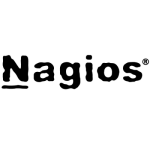What is our primary use case?
The primary use case is the cost. Typically speaking, our customers have a plethora of tools and they find it very difficult to manage their business services with a selection of tools. In most cases, they're able to replace all of their tools with one — Zabbix.
We counsel groups and we recommend using Zabbix — we're a reseller.
We focus on Zabbix. When a customer needs it integrated with Microsoft, or ServiceNow, or other solutions, then we help them out from a consulting perspective. We focus on and we recommend Zabbix. Which is an enterprise monitoring solution.
I take care of sales and marketing.
If the customer requires integration, then there are easy ways of integrating Zabbix with JIRA, ServiceNow, ITSM, and all other sorts of different solutions.
What is most valuable?
The most valuable aspect of this solution is the fact that it is enterprise-level, scalable, and free.
Just being free isn't enough, obviously. You have to be able to respond to a considerable number of enterprise requirements and be secure. Security is part of the enterprise requirements. The fact that Zabbix can offer those things, and it's free, is why our customers choose it.
What needs improvement?
When our customers don't choose to go with Zabbix, it's usually been because they're looking for a solution that also contains mainstream AI, AIOps, if you wish. AIOps is a fully noted marketing buzzword, which can mean all sorts of things for different people. When I use that term, I'm talking about the requirement to analyze in-depth enterprise data. Zabbix is not an analytics platform.
We've never had any issue at all integrating Zabbix with any of the existing enterprise tools, whether it be ITSM, JIRA, or an analytics tool like Splunk — it's never been an issue. Their design team does a very good job allowing people to get access to the Zabbix database and to the Zabbix Schema, which defines the data that's stored in.
In the latest version, which is just about to be deployed, they are adding the capability of doing APM (Application Performance Monitoring). That's a feature that has currently been lacking — we'll have to see how it goes.
For how long have I used the solution?
I have been using Zabbix for one year.
What do I think about the scalability of the solution?
It's a very reliable platform and we've never had any issues regarding the scalability or the stability of Zabbix. We've seen customers (not our customers) that have got huge implementations of millions of objects which are being managed. We've never had any issues with scalability.
How are customer service and technical support?
Zabbix is not a licensed software. People don't buy licenses for Zabbix. Technically, we are a reseller. So what is it that we resell from Zabbix? The answer is their service. Either their contractual support, their annuity based support, or their technical support. We can get them involved in certain implementations if the customer requirements require that.
Zabbix technical support is sold separately.
How was the initial setup?
The initial setup is straightforward. It's a powerful tool; it's applicable to many different domains, through networks, through infrastructure, through applications, through containers, virtual resources, and cloud-based applications — it can be applied to all of them. The initial implementation is usually something we never have an issue with. It's a very easy-to-download package. Implementation requires experience. Deploying Zabbix is very easy, but if you don't know what you're doing, you can make an awful mess. That's where and why we offer our consultancy — to help people to make sure that they don't end up with petabytes of monitoring information on the first day. Which of course no one has any time to go through and handle.
What other advice do I have?
Speak to a Zabbix expert before you get started because there are so many options in terms of architecture for deployment that you really need to understand relating to how Zabbix can give you those options and why they're useful. Options might include encryption or distributed architecture, so delegating monitoring responsibilities close to the objects that have been managed using proxies is a good idea. There are choices to be made so if you don't know the product and you are speaking to someone who does, then listen, because they can advise you properly to get the best benefit out of the software. Zabbix is a free package, you're not paying for any licensed software; the expense of Zabbix over time is related to how it's deployed and used. If you don't deploy it right, then you'll spend more time fixing your mistakes than actually using the software.
On a scale from one to ten, I would give Zabbix a rating of eight.
I am not giving them a higher rating because they don't have analytics. They're getting there. They're becoming more and more proactive. They just added something which was very important called 'application performance monitoring'. From an enterprise perspective, they still lack the analytics capabilities, but that's not necessarily an issue unless you're looking to choose one tool that does everything.
Which deployment model are you using for this solution?
On-premises
Disclosure: My company has a business relationship with this vendor other than being a customer: Partner


















I am pleased to see what other tools you have used before switching to Zabbix, out of those I have only used PRTG and I see Zabbix as a better option by far.